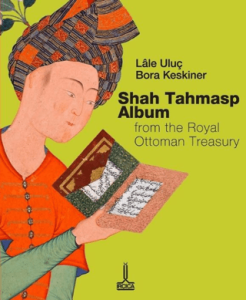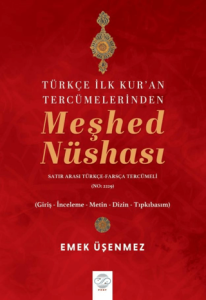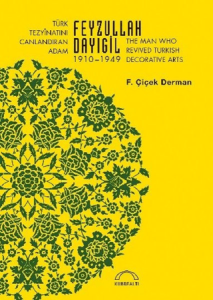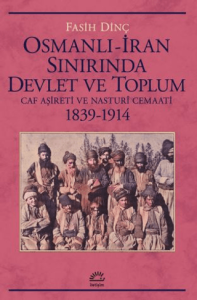
Lâle Uluç completed her Ph.D. at the Institute of Fine Arts, New York University. She is currently teaching at Boğaziçi University, Istanbul.
Uluç explores the intriguing story of a group of 16th century Shiraz manuscripts and how they found their way into the collections of the Topkapi Palace Museum in Turkman Governors, Shiraz Artisans and Ottoman Collectors:
She examines how the arts of the book of Shiraz, a Safavid provincial center, evolved to a degree that could compete with the court workshops.
Supported by anonymous patrons, the artisans-illuminators, calligraphers, painters and bookbinders developed their own workshop traditions and introduced many new elements inspired by Safavid court manuscripts.
The book also examines how some manuscripts reached the Ottoman court as gifts, attracting the attention of the Ottoman ruling elite.
While recounting the long and curious story of sixteenth century Shiraz manuscripts, the book reunites a unique collection of original samples, now scattered in several major cities from Istanbul to New York, Tehran to St. Petersburg and Paris to Washington.
Lâle Uluç completed her Ph.D. at the Institute of Fine Arts, New York University. She is currently teaching at Boğaziçi University, Istanbul.
Uluç explores the intriguing story of a group of 16th century Shiraz manuscripts and how they found their way into the collections of the Topkapi Palace Museum in Turkman Governors, Shiraz Artisans and Ottoman Collectors:
She examines how the arts of the book of Shiraz, a Safavid provincial center, evolved to a degree that could compete with the court workshops.
Supported by anonymous patrons, the artisans-illuminators, calligraphers, painters and bookbinders developed their own workshop traditions and introduced many new elements inspired by Safavid court manuscripts.
The book also examines how some manuscripts reached the Ottoman court as gifts, attracting the attention of the Ottoman ruling elite.
While recounting the long and curious story of sixteenth century Shiraz manuscripts, the book reunites a unique collection of original samples, now scattered in several major cities from Istanbul to New York, Tehran to St. Petersburg and Paris to Washington.





















